Abstract
One hundred and thirty-nine complete human brains ranging in age from 10 weeks' gestation to 7 postnatal years, together with 9 adult brains, have been analysed in order to describe the human brain growth spurt quantitatively. The three major regions were examined for weight, DNA, cholesterol, and water content. The growth spurt period is much more postnatal than has formerly been supposed. The cerebellum has special growth characteristics; and there is a separate period from 10 to 18 weeks' gestation when adult neuronal cell number may largely be achieved. The implications of these findings for the vulnerability of developing brain are discussed.
Full text
PDF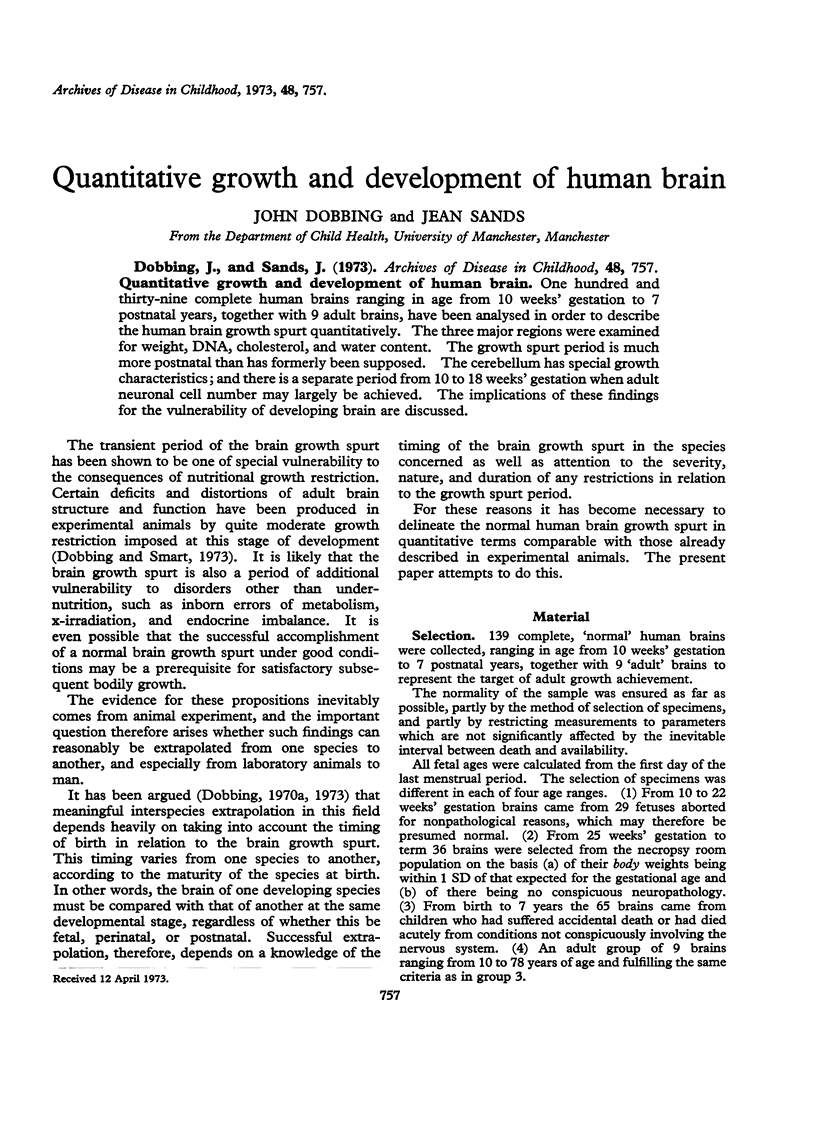
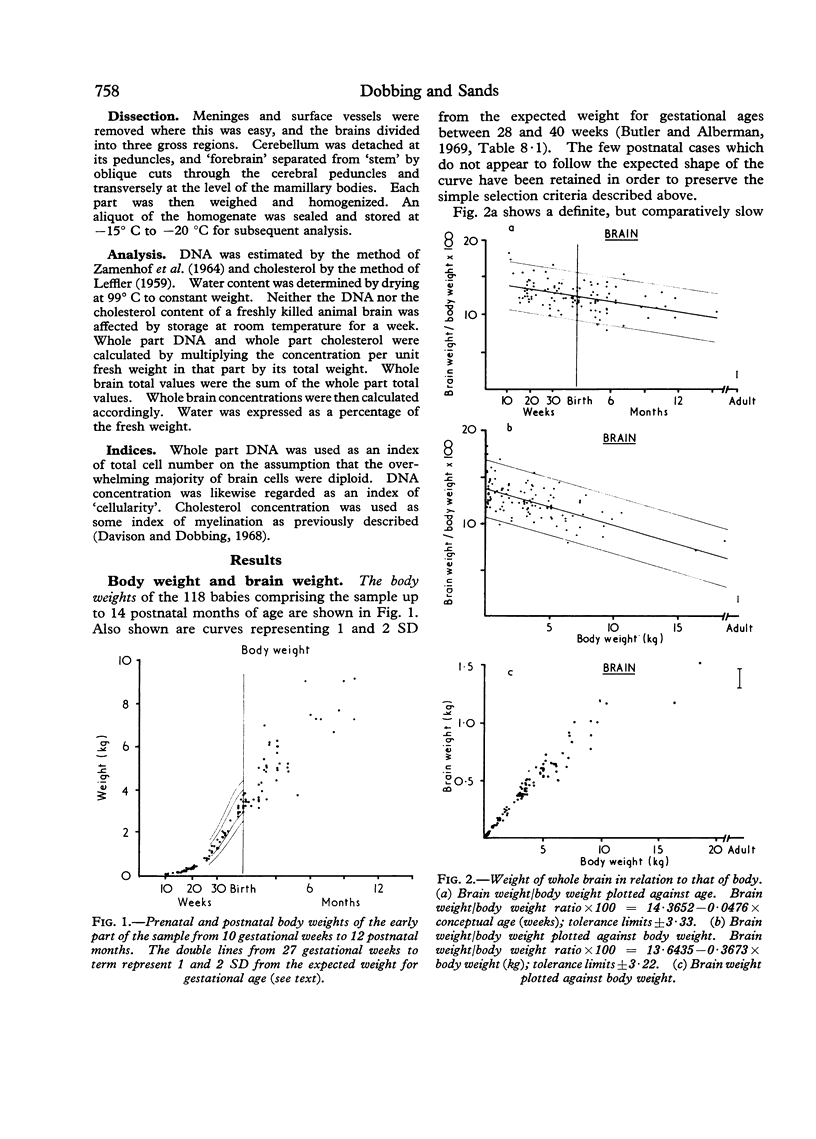
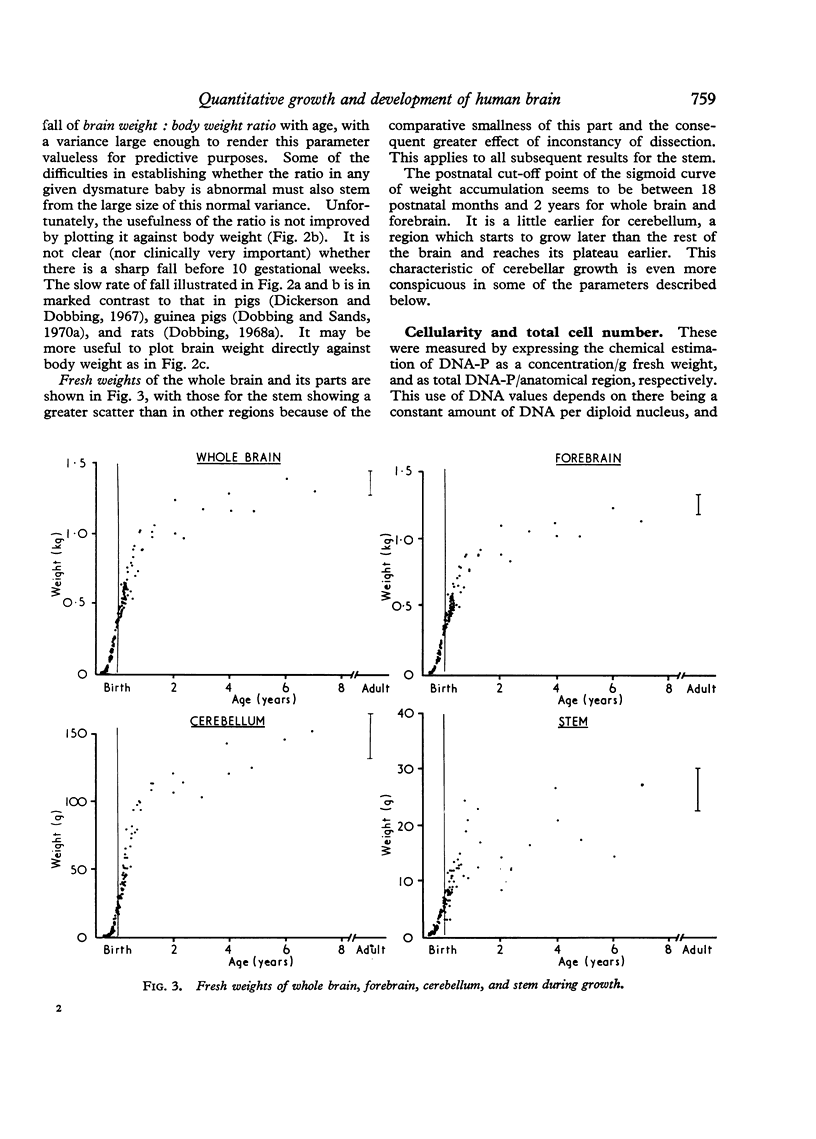
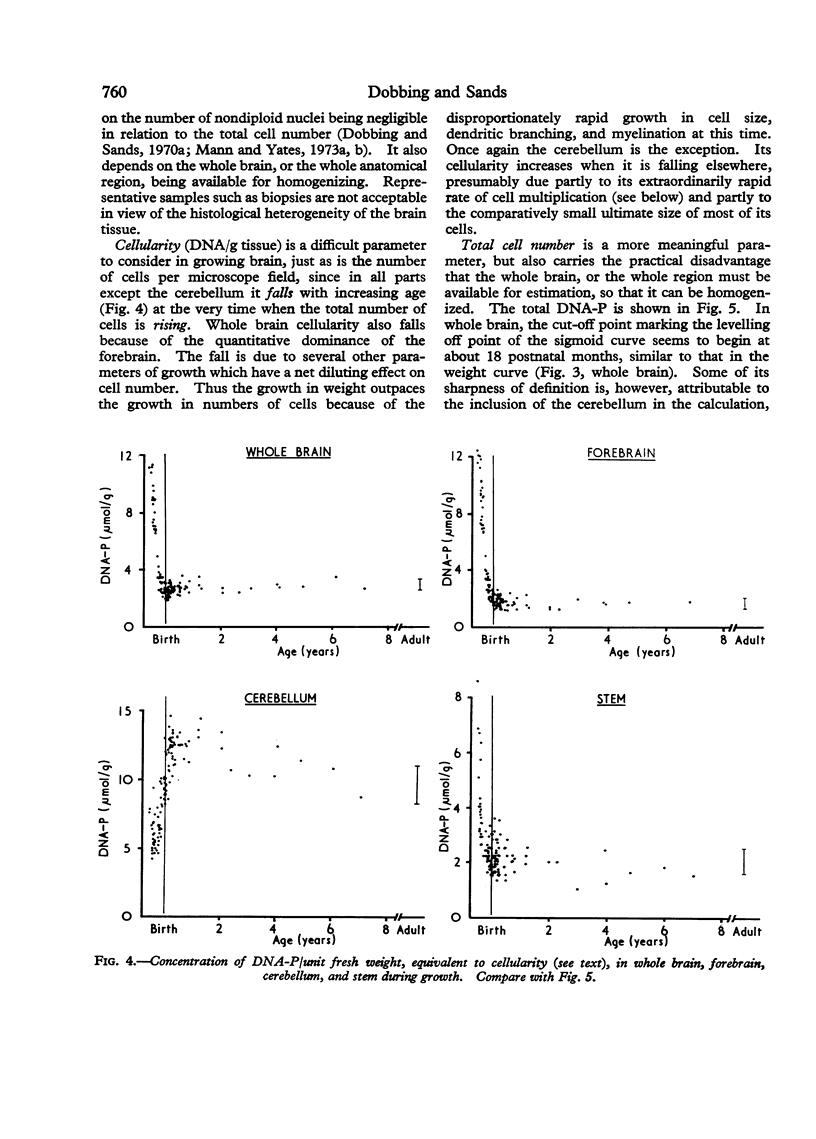
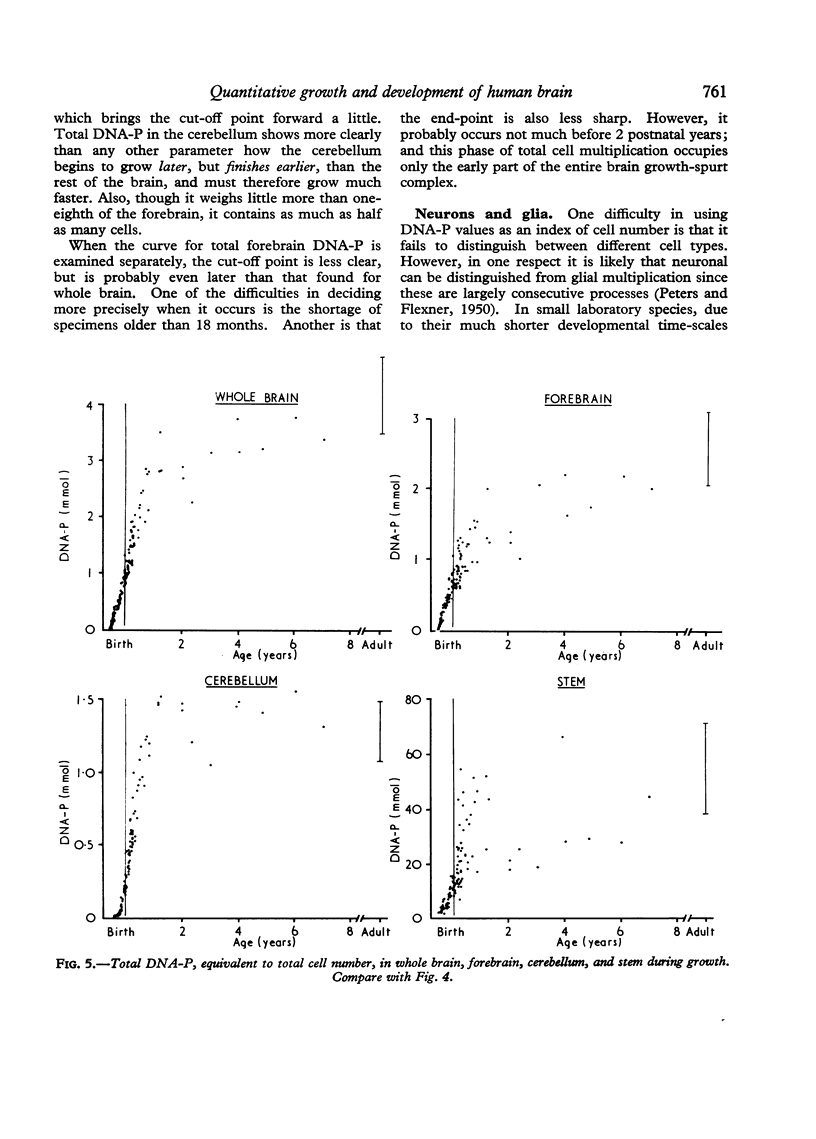
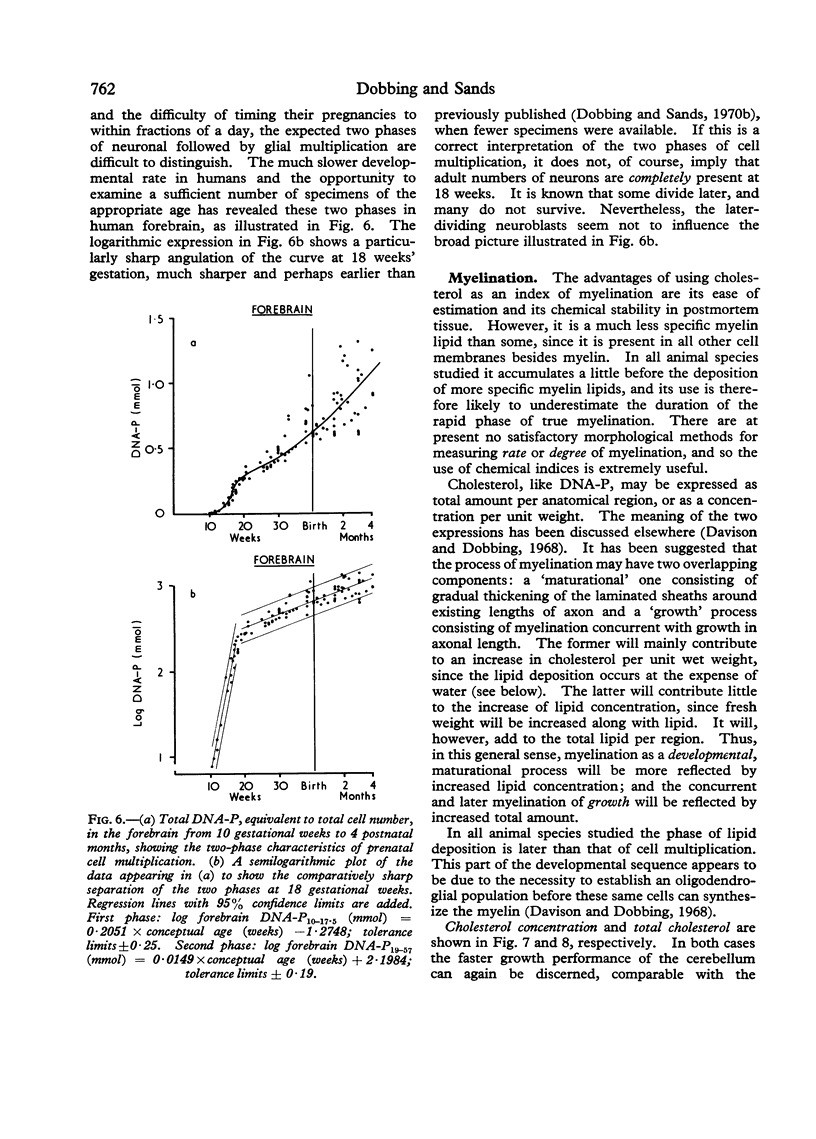
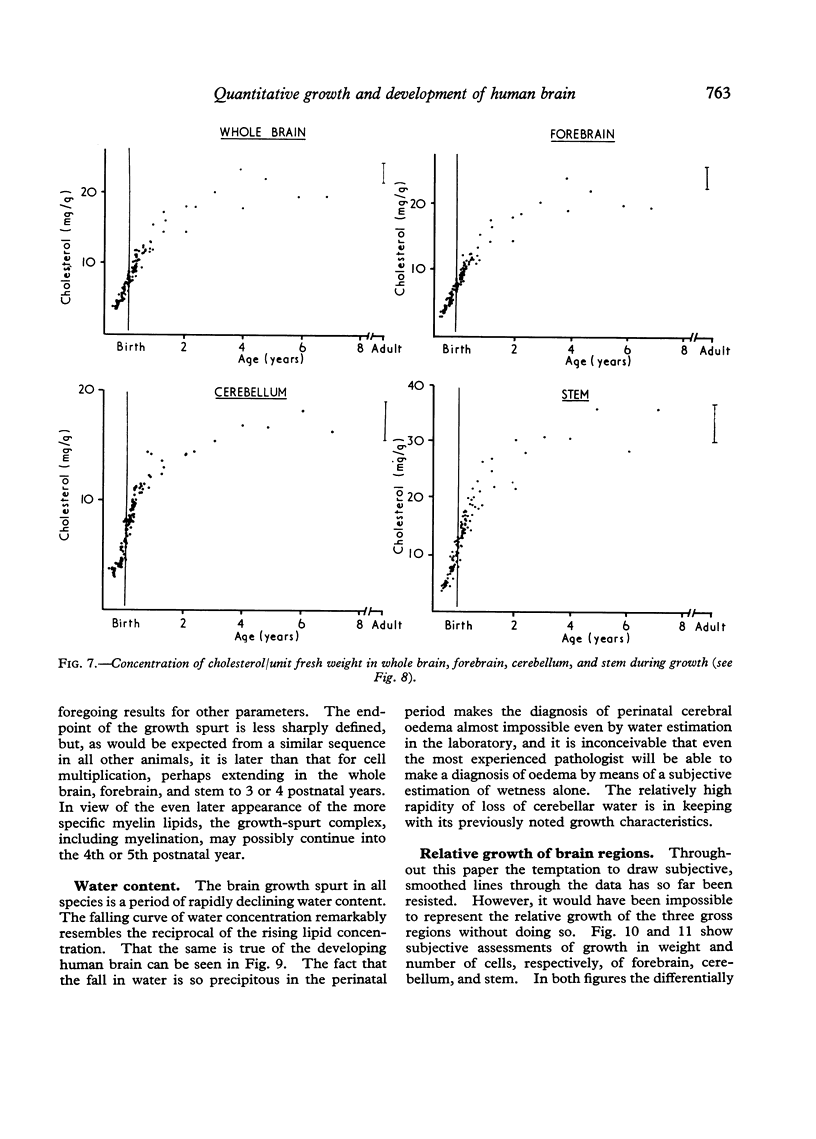
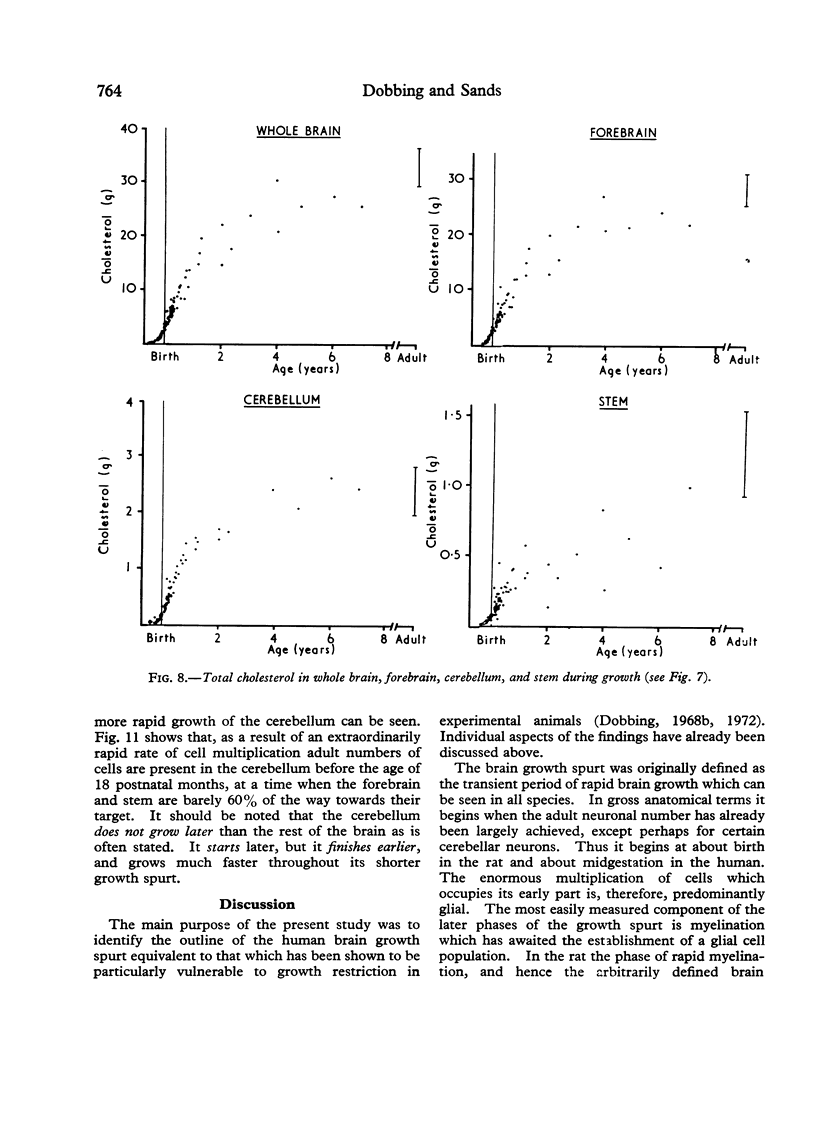
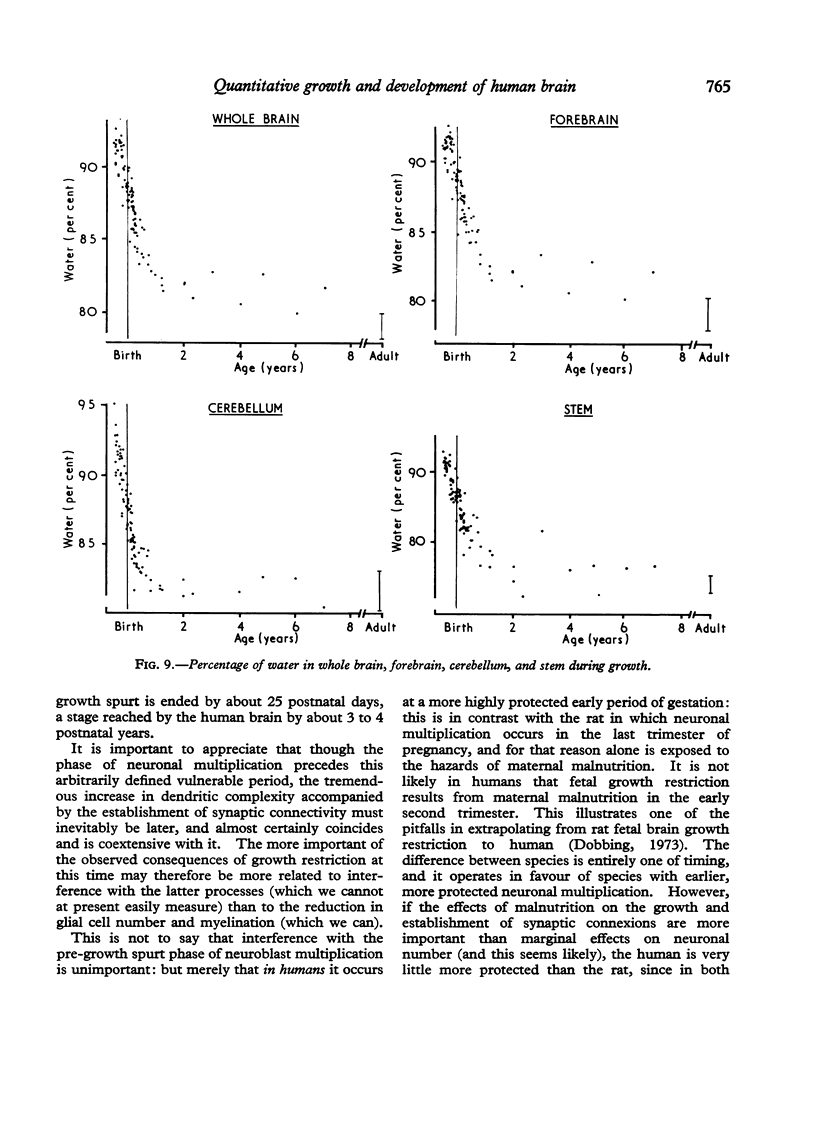
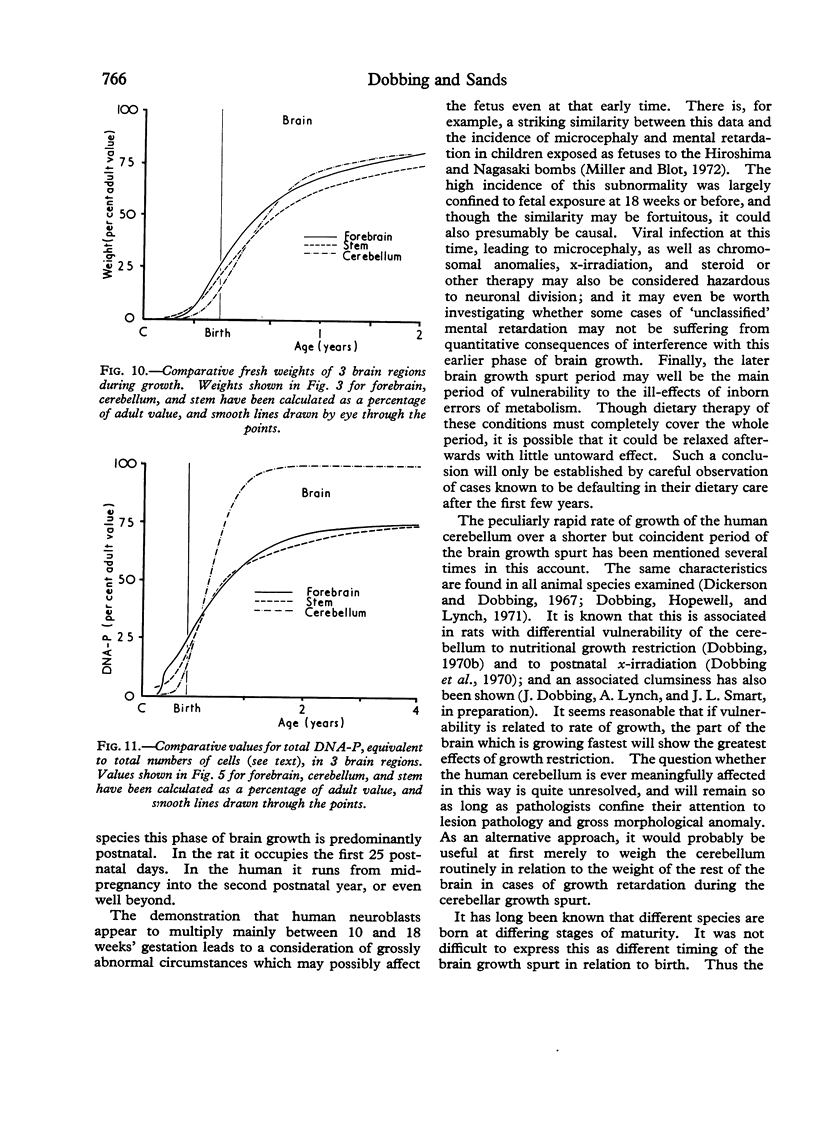
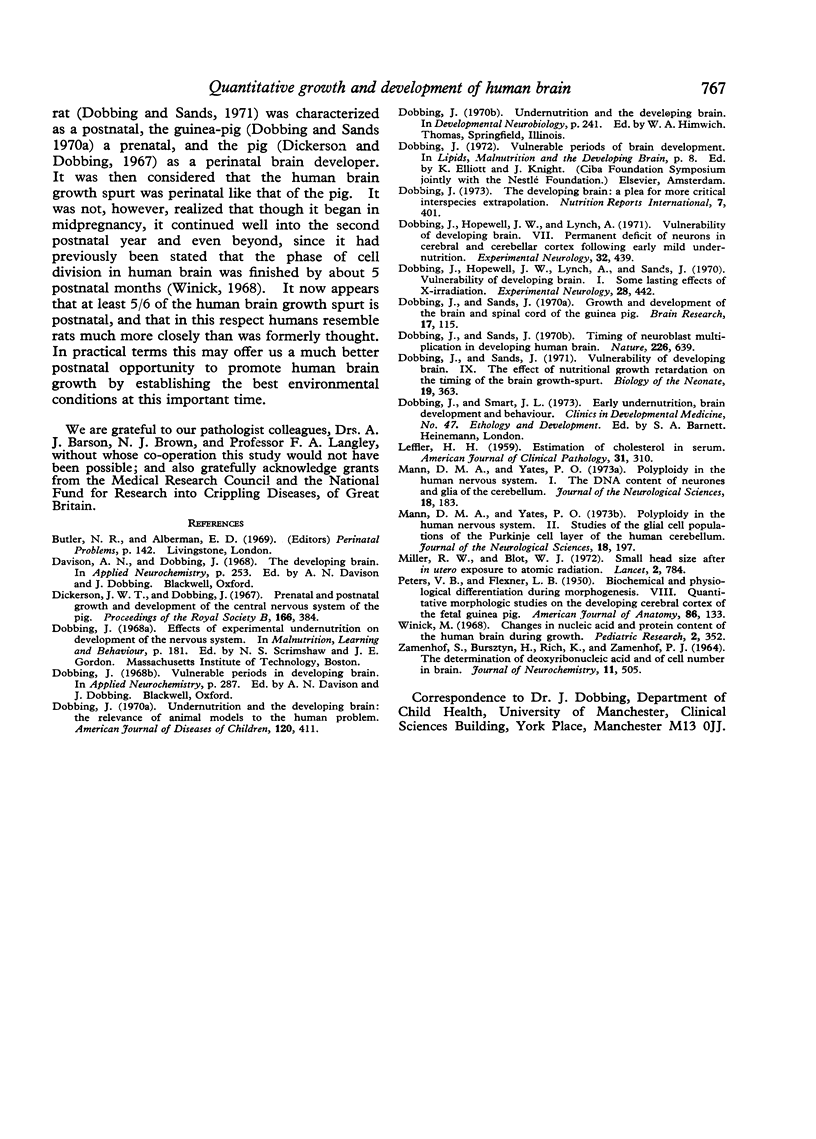
Selected References
These references are in PubMed. This may not be the complete list of references from this article.
- Dobbing J., Hopewell J. W., Lynch A., Sands J. Vulnerability of developing brain. I. Some lasting effects of x-irradiation. Exp Neurol. 1970 Sep;28(3):442–449. doi: 10.1016/0014-4886(70)90181-0. [DOI] [PubMed] [Google Scholar]
- Dobbing J., Hopewell J. W., Lynch A. Vulnerability of developing brain. VII. Permanent deficit of neurons in cerebral and cerebellar cortex following early mild undernutrition. Exp Neurol. 1971 Sep;32(3):439–447. doi: 10.1016/0014-4886(71)90010-0. [DOI] [PubMed] [Google Scholar]
- Dobbing J., Sands J. Growth and development of the brain and spinal cord of the guinea pig. Brain Res. 1970 Jan 6;17(1):115–123. doi: 10.1016/0006-8993(70)90311-2. [DOI] [PubMed] [Google Scholar]
- Dobbing J., Sands J. Timing of neuroblast multiplication in developing human brain. Nature. 1970 May 16;226(5246):639–640. doi: 10.1038/226639a0. [DOI] [PubMed] [Google Scholar]
- Dobbing J., Sands J. Vulnerability of developing brain. IX. The effect of nutritional growth retardation on the timing of the brain growth-spurt. Biol Neonate. 1971;19(4):363–378. doi: 10.1159/000240430. [DOI] [PubMed] [Google Scholar]
- Dobbing J. Undernutrition and the developing brain. The relevance of animal models to the human problem. Am J Dis Child. 1970 Nov;120(5):411–415. doi: 10.1001/archpedi.1970.02100100075005. [DOI] [PubMed] [Google Scholar]
- LEFFLER H. H. Estimation of cholesterol in serum. Am J Clin Pathol. 1959 Apr;31(4):310–313. doi: 10.1093/ajcp/31.4.310. [DOI] [PubMed] [Google Scholar]
- Mann D. M., Yates P. O. Polyploidy in the human nervous system. 1. The DNA content of neurones and glia of the cerebellum. J Neurol Sci. 1973 Feb;18(2):183–196. doi: 10.1016/0022-510x(73)90005-1. [DOI] [PubMed] [Google Scholar]
- Mann D. M., Yates P. O. Polyploidy in the human nervous system. 2. Studies of the glial cell populations of the Purkinje cell layer of the human cerebellum. J Neurol Sci. 1973 Feb;18(2):197–205. doi: 10.1016/0022-510x(73)90006-3. [DOI] [PubMed] [Google Scholar]
- Miller R. W., Blot W. J. Small head size after in-utero exposure to atomic radiation. Lancet. 1972 Oct 14;2(7781):784–787. doi: 10.1016/s0140-6736(72)92145-9. [DOI] [PubMed] [Google Scholar]
- PETERS V. B., FLEXNER L. B. Biochemical and physiological differentiation during morphogenesis; quantitative morphologic studies on the developing cerebral cortex of the fetal guinea pig. Am J Anat. 1950 Jan;86(1):133–161. doi: 10.1002/aja.1000860106. [DOI] [PubMed] [Google Scholar]
- Winick M. Changes in nucleic acid and protein content of the human brain during growth. Pediatr Res. 1968 Sep;2(5):352–355. doi: 10.1203/00006450-196809000-00003. [DOI] [PubMed] [Google Scholar]
- ZAMENHOF S., BURSZTYN H., RICH K., ZAMENHOF P. J. THE DETERMINATION OF DEOXYRIBONUCLEIC ACID AND OF CELL NUMBER IN BRAIN. J Neurochem. 1964 Jul;11:505–509. doi: 10.1111/j.1471-4159.1964.tb07499.x. [DOI] [PubMed] [Google Scholar]


